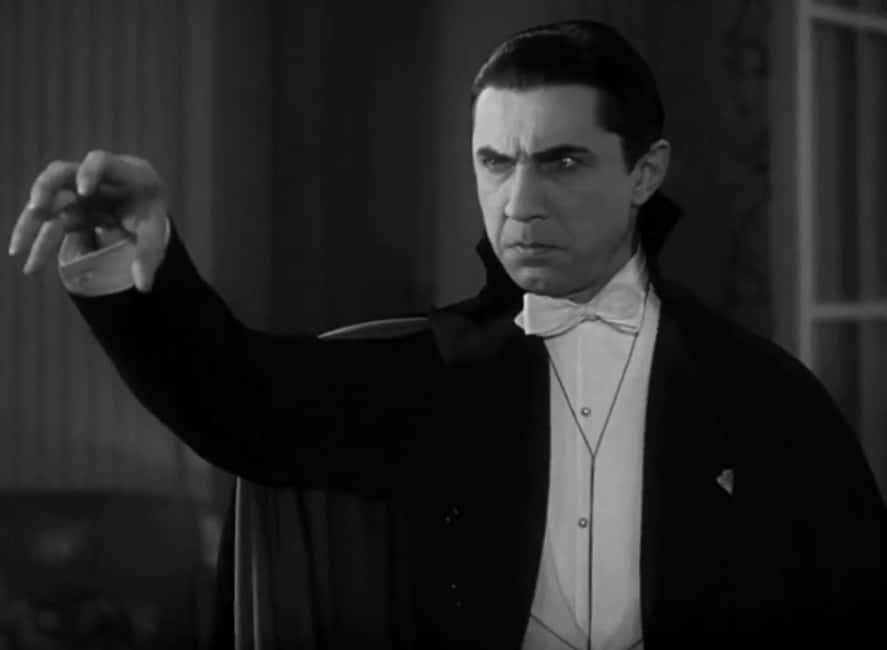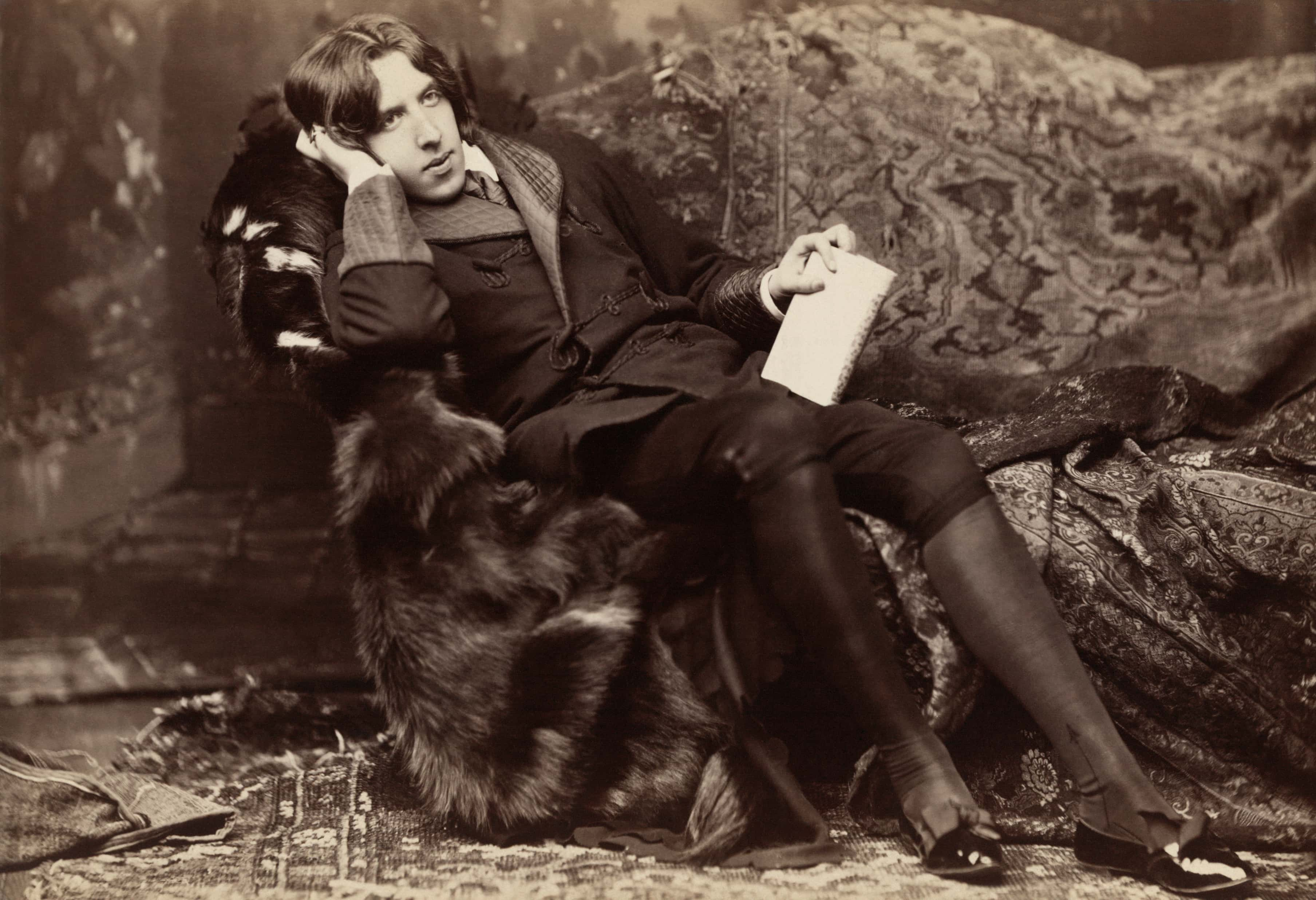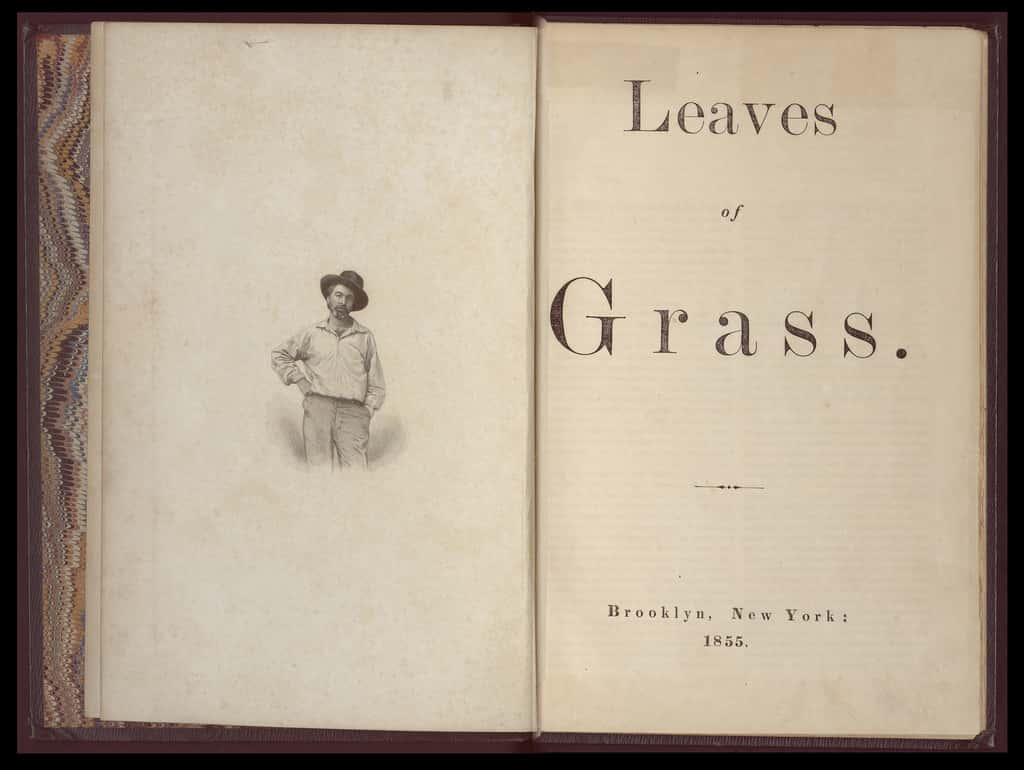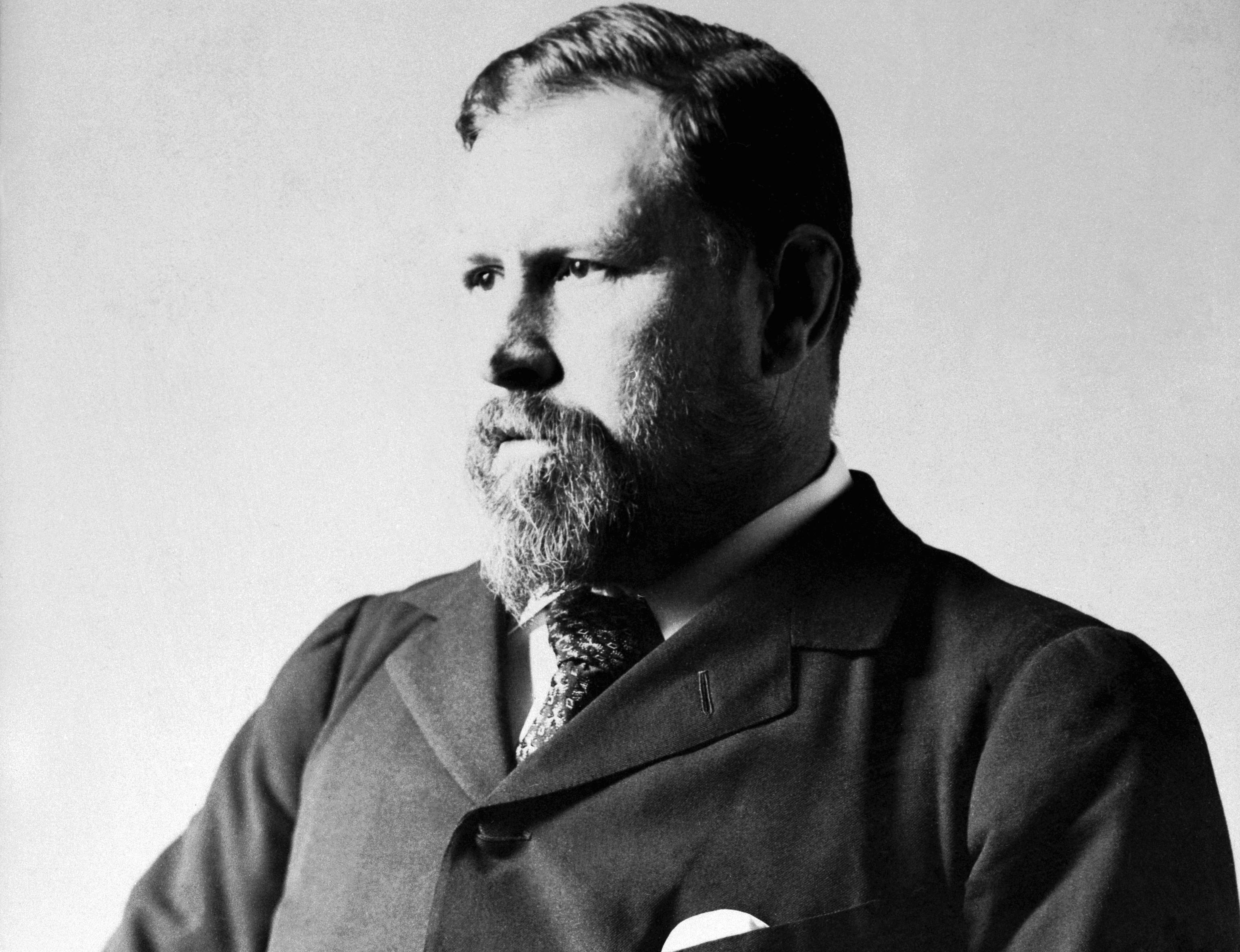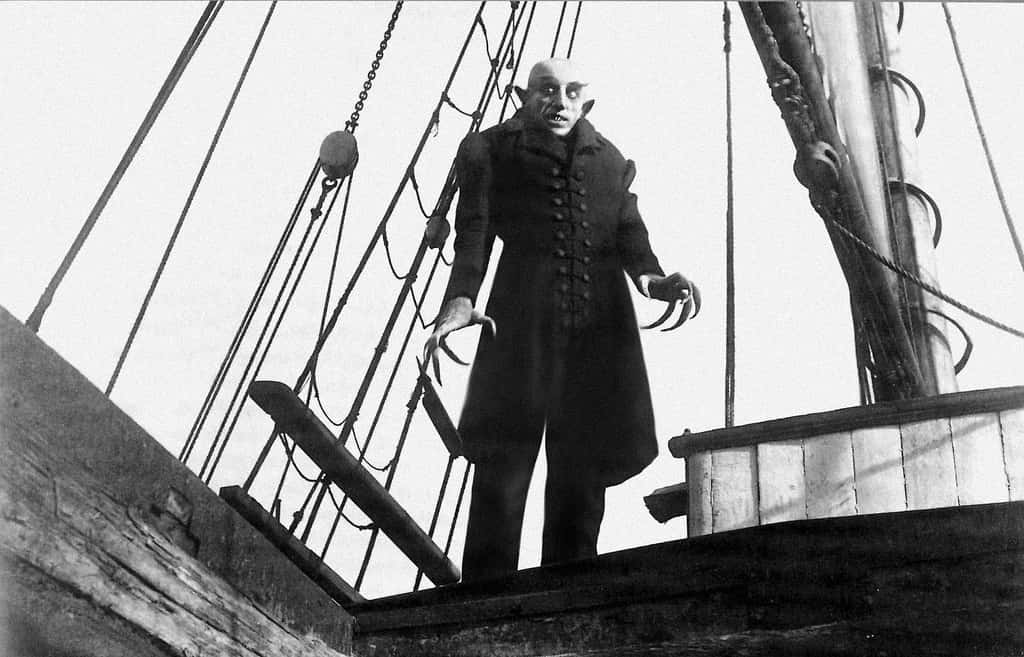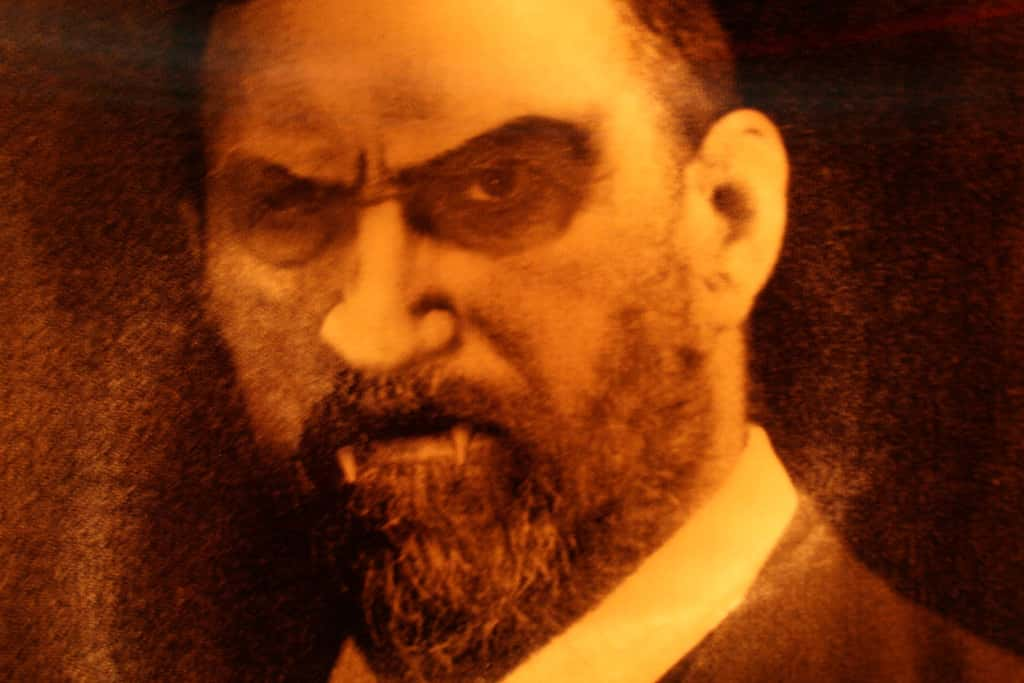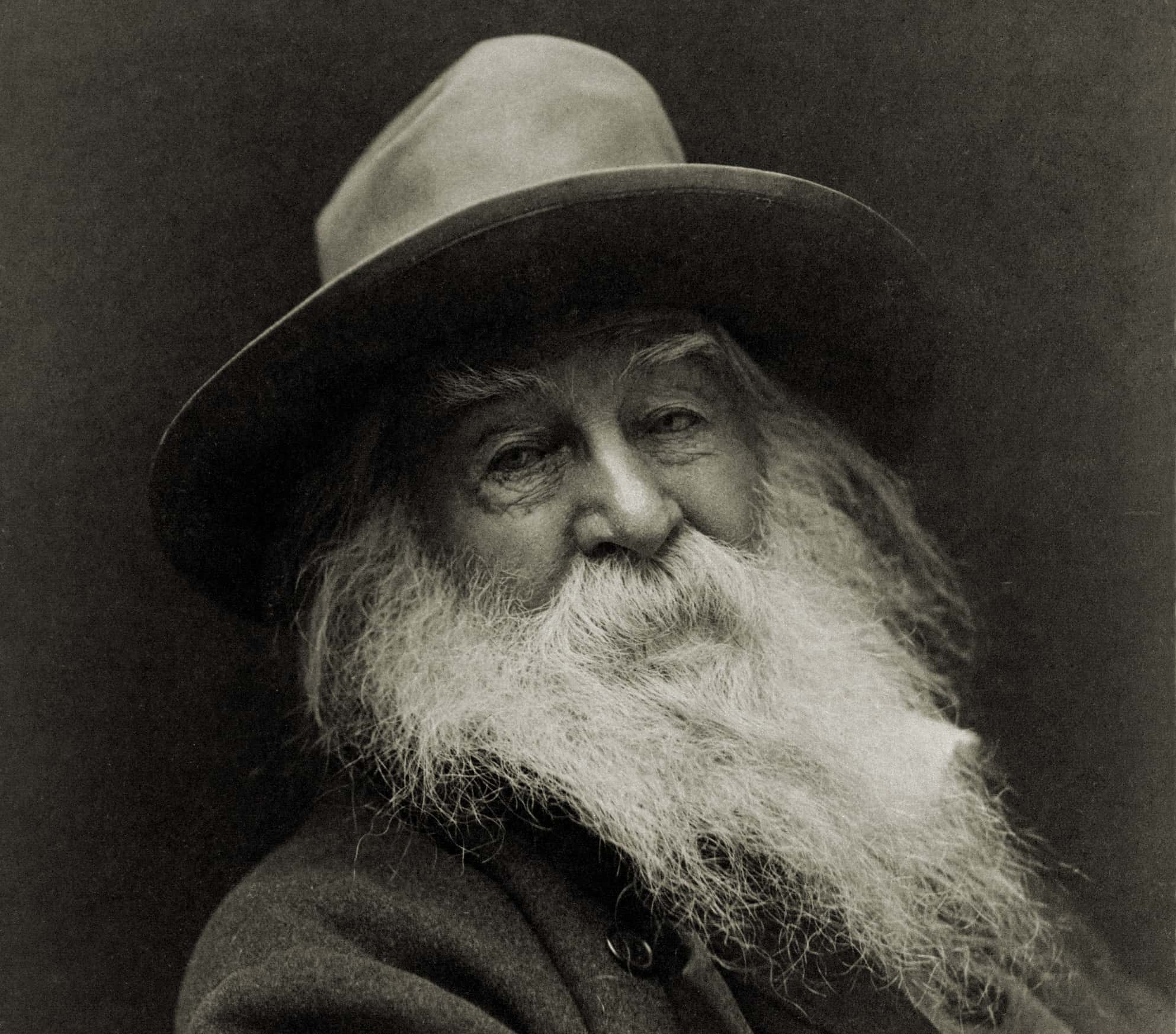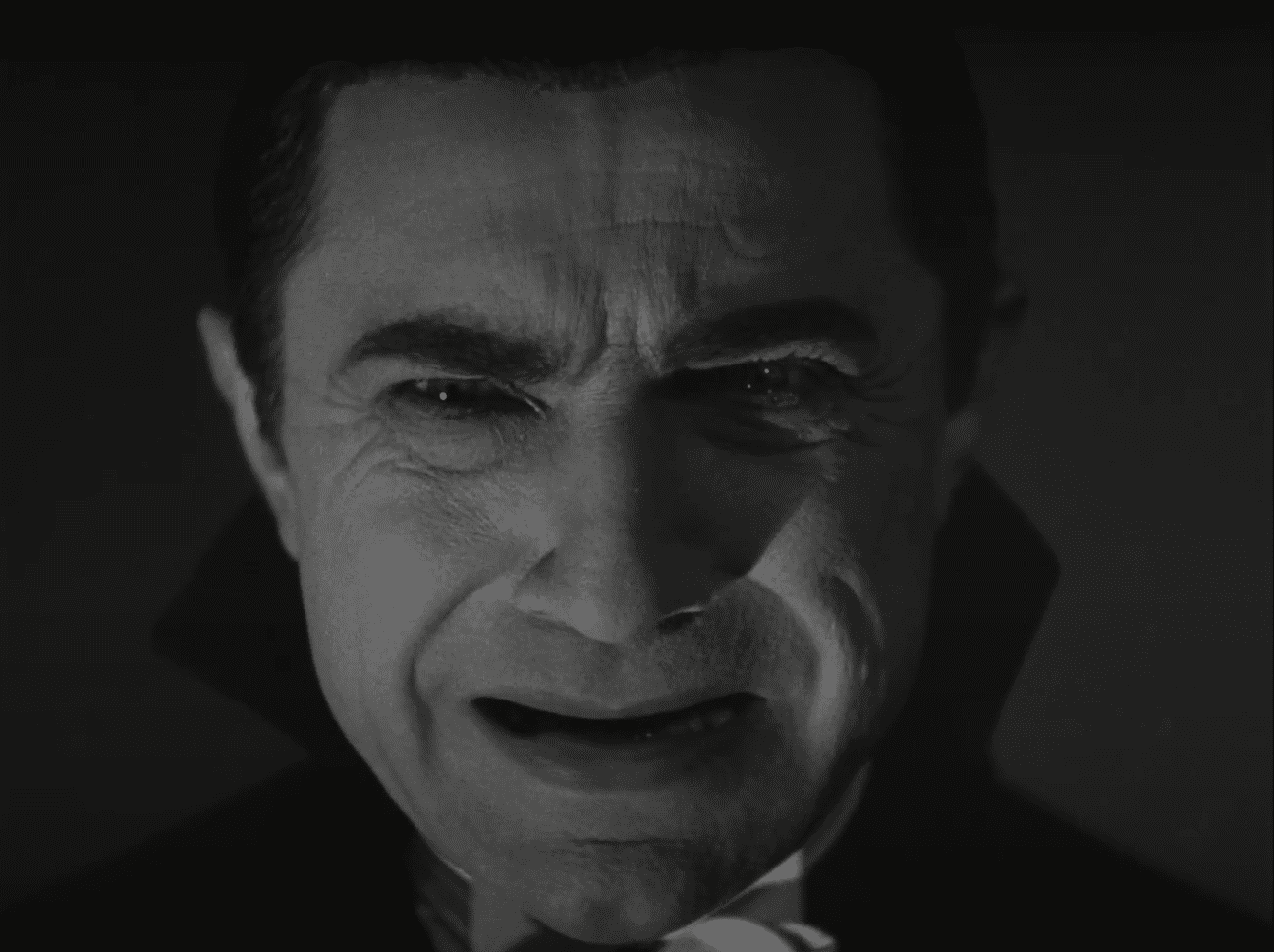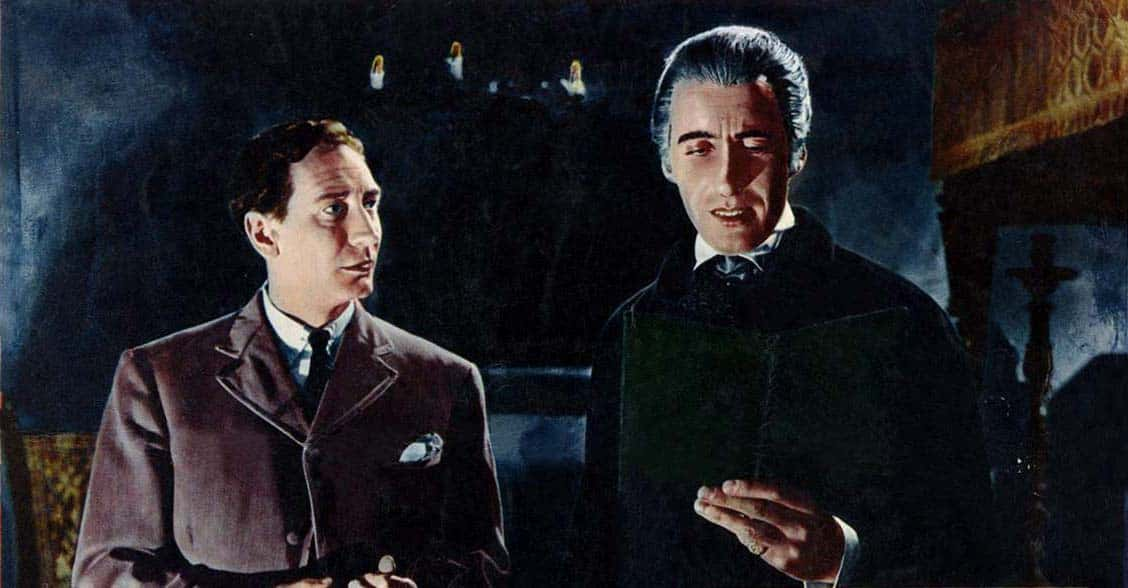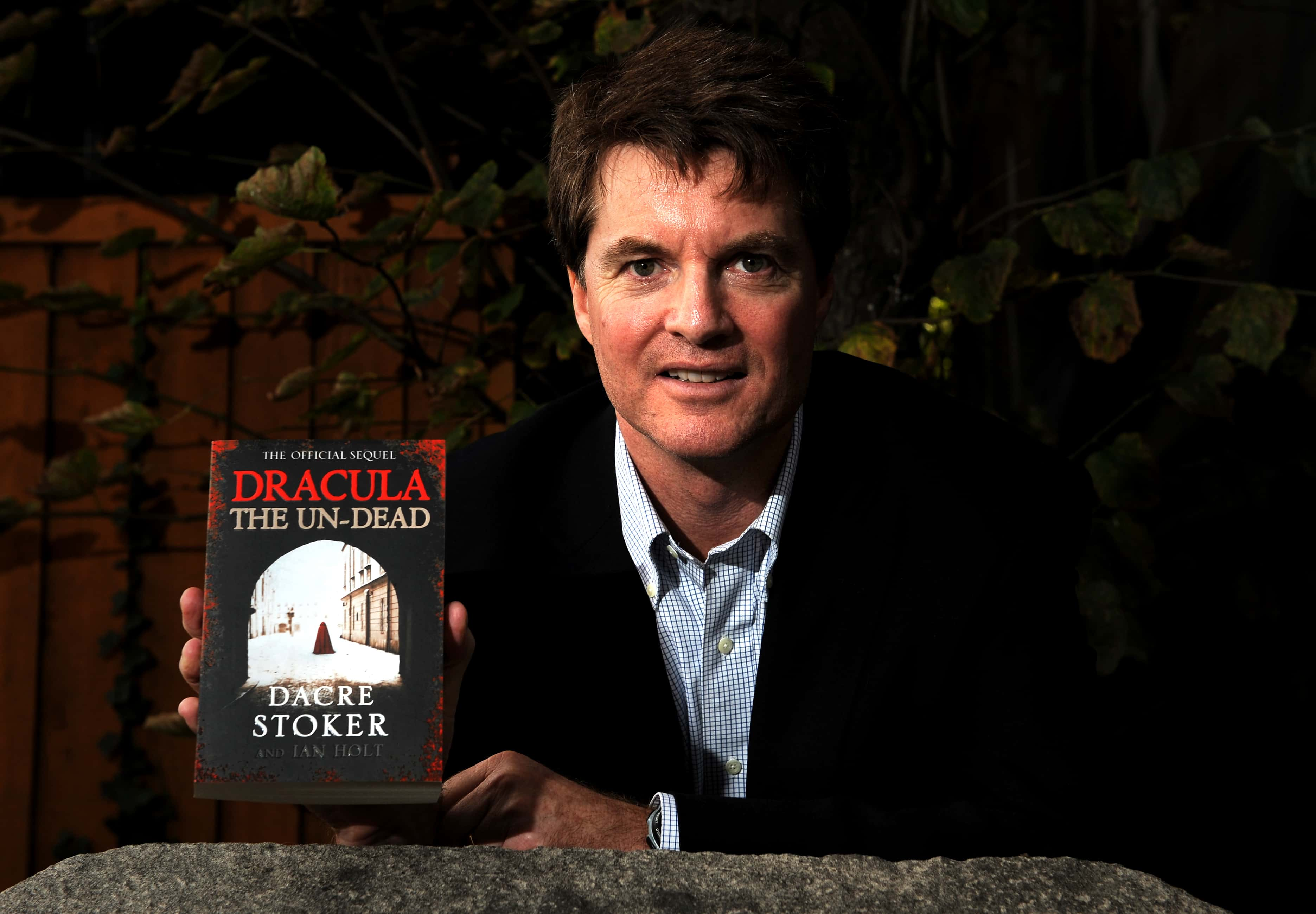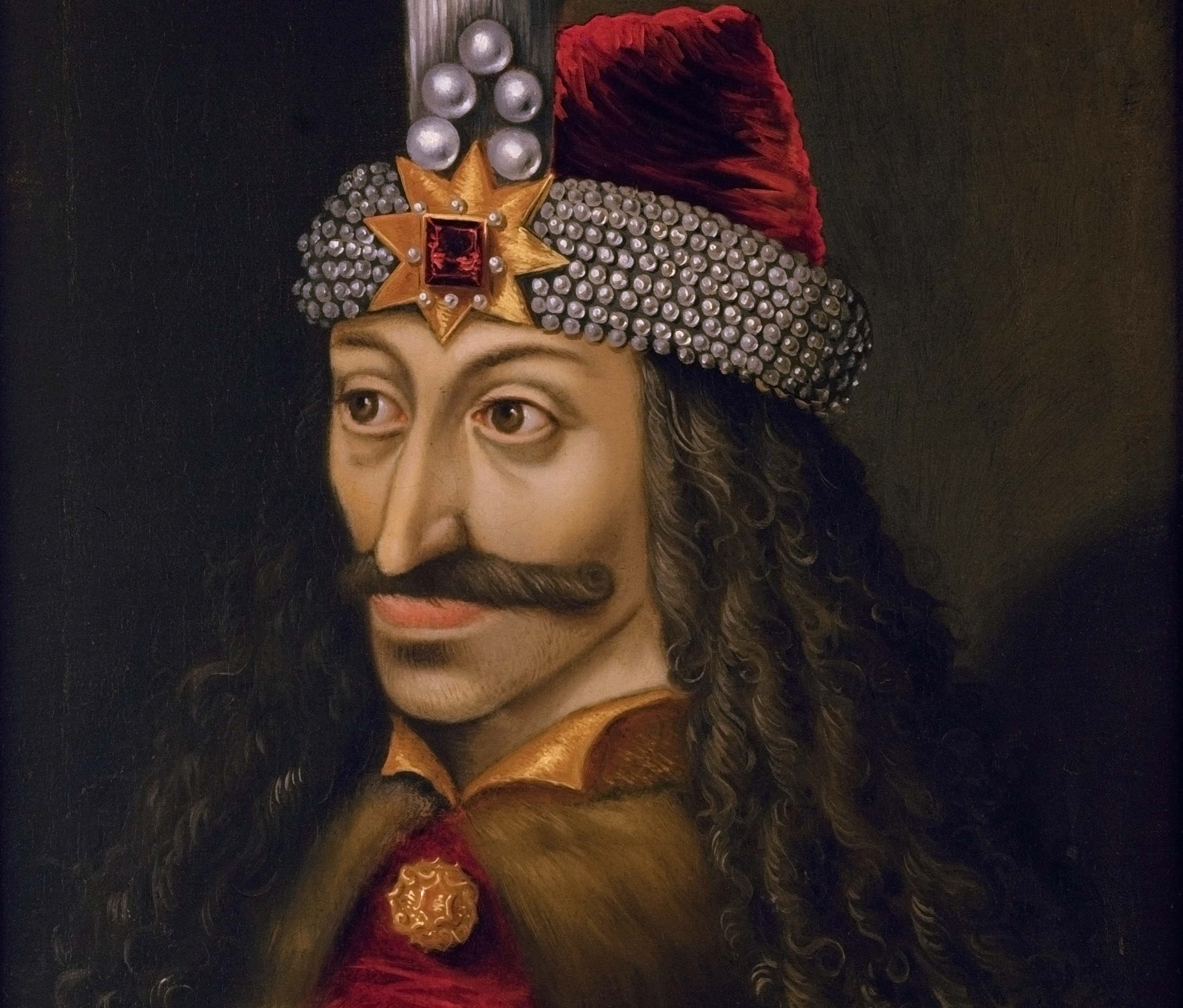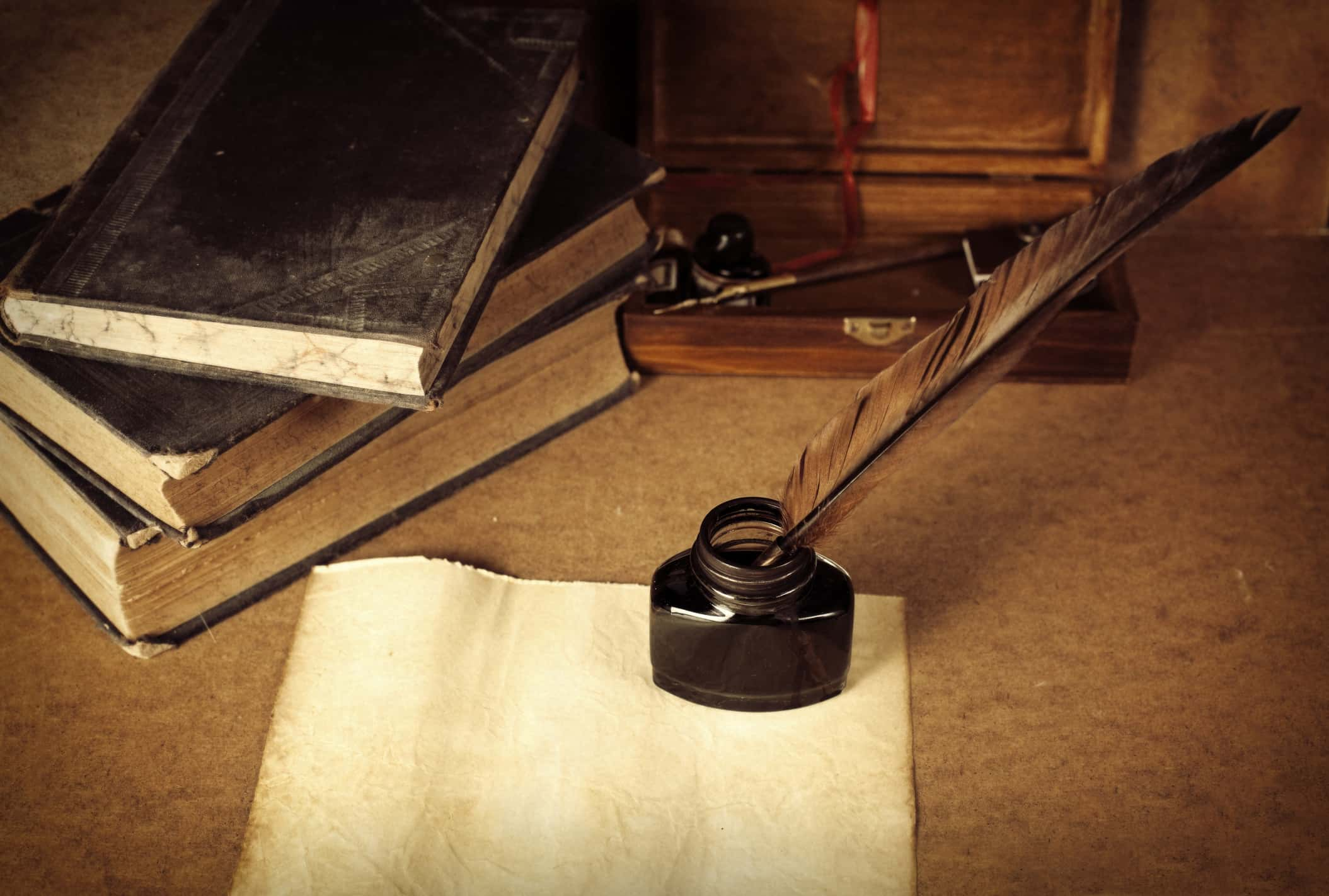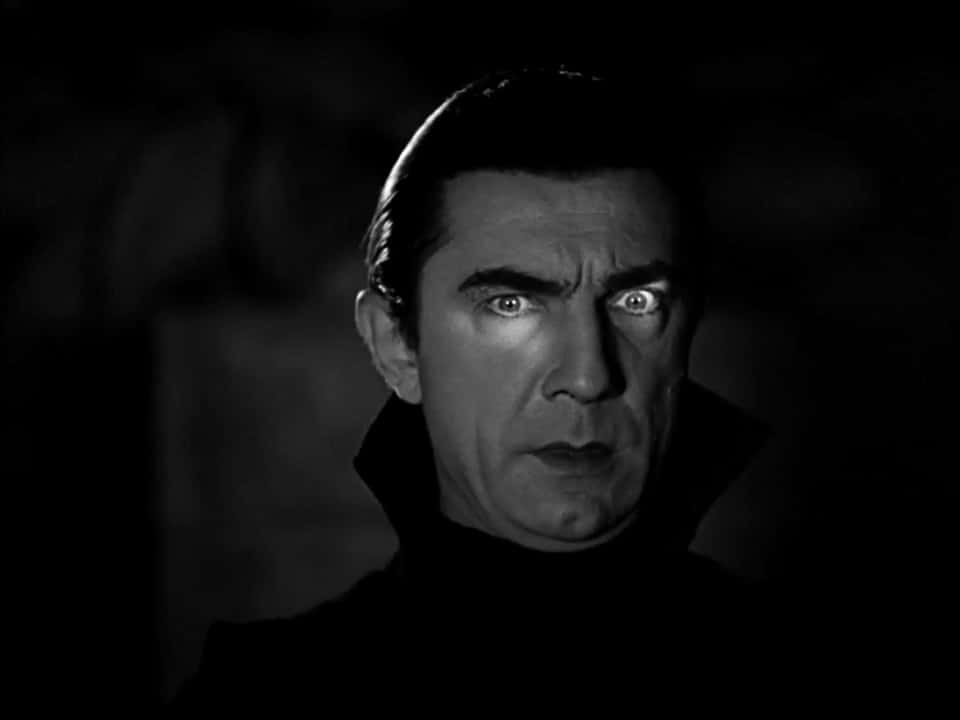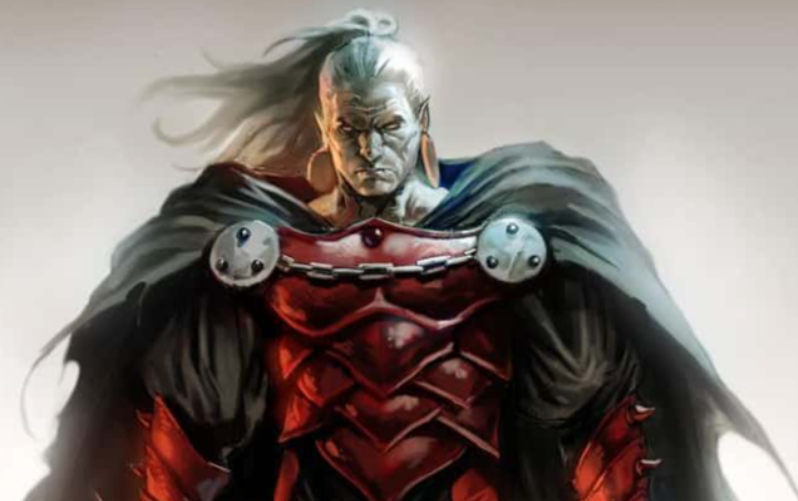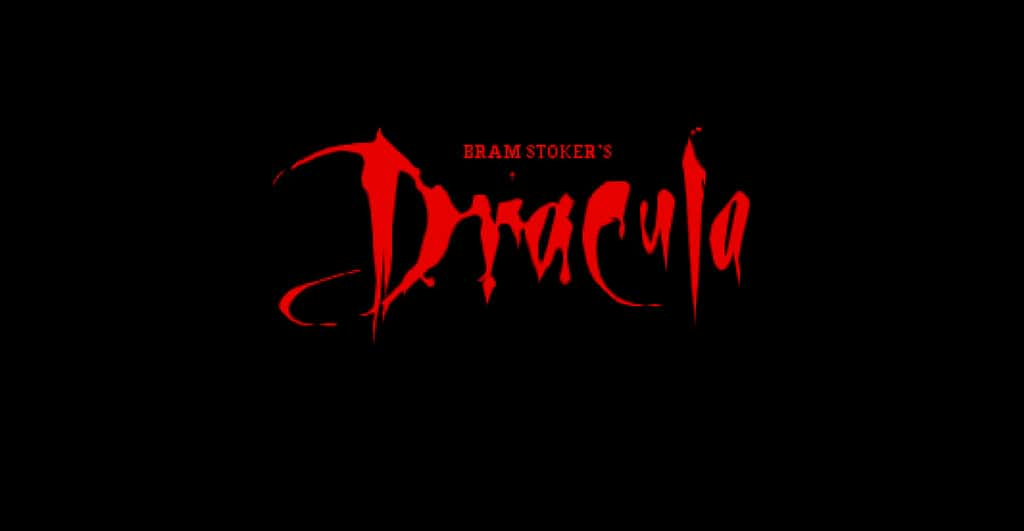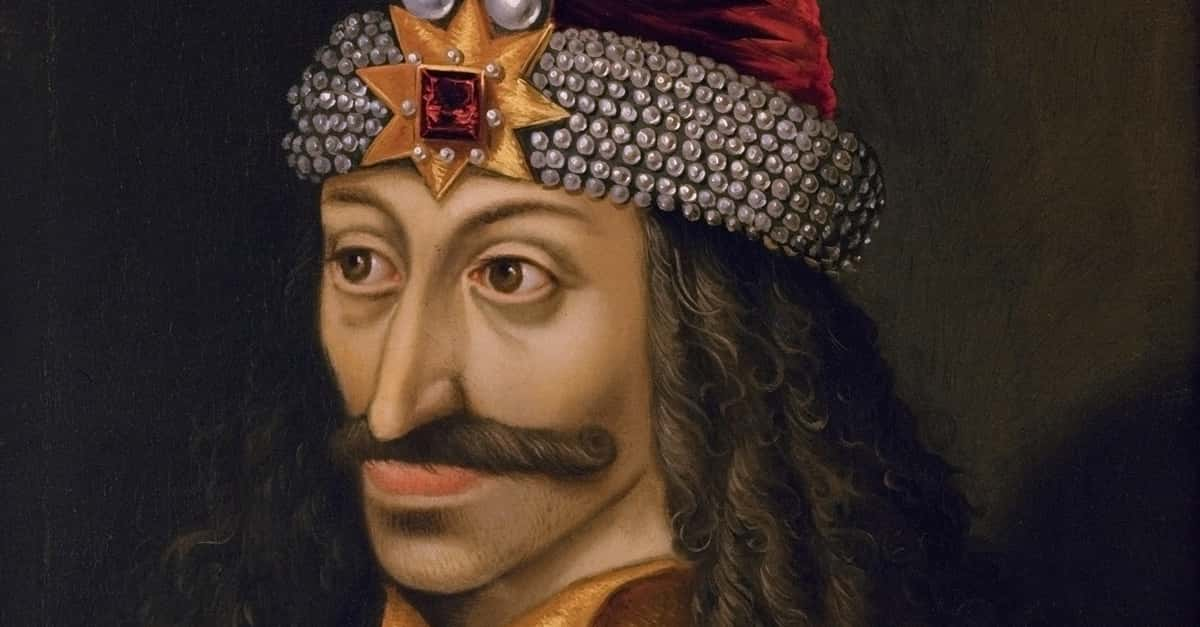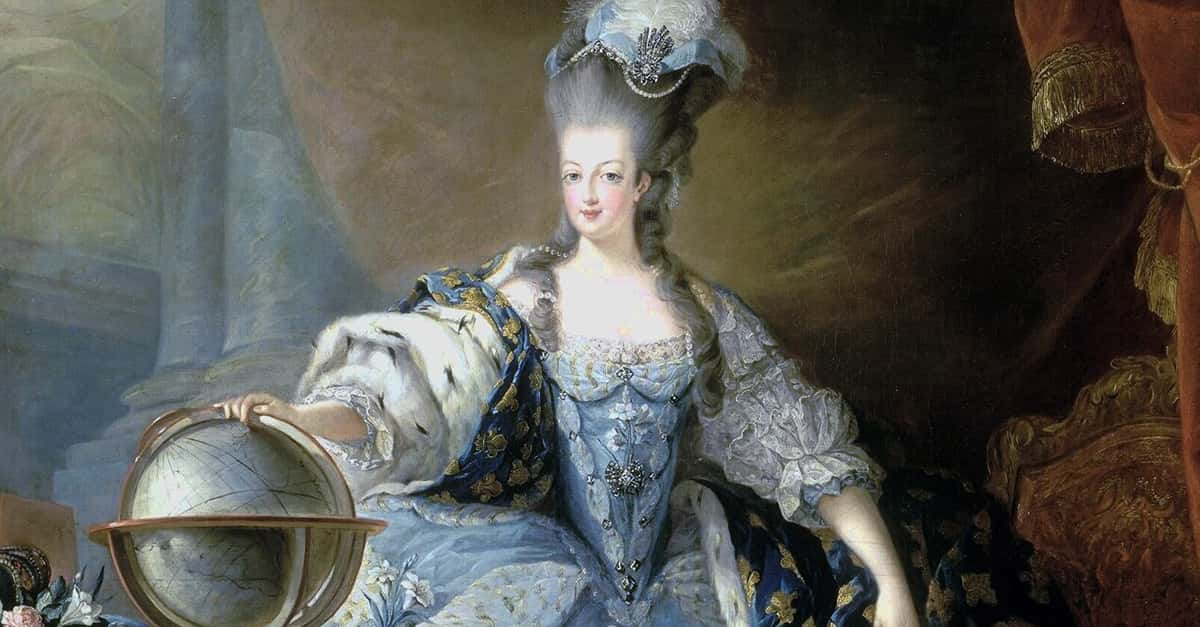One of the possible locations for Dracula’s castle is Slains Castle in Scotland. It was a place that Stoker would have been intimately familiar with having spent summers nearby. When he wrote the description of the castle in the book he was actually staying in the area, so he would have had a bird’s eye view. Bran’s Castle in Romania has also been commonly associated with Dracula, but since Stoker never visited that region, he wouldn’t have seen the castle to write about it.
“Let me be accurate in everything, for though you and I have seen some strange things together, you may at the first think that I, Van Helsing, am mad. That the many horrors and the so long strain on nerves has at the last turn my brain”—Bram Stoker, Dracula.
Abraham (Bram) Stoker was an Irish born author best known as the author of the gothic horror novel Dracula. The novel was published in 1897 and took the form of diaries and journals recorded by central character Jonathan Harker, who was the first to meet the vampire Dracula. The novel is considered to be one of the greatest vampire novels ever written, and has inspired numerous movies, television shows, plays, comics and more. Here are 44 bloodsucking facts about the famous author.
44. Peak Success
Bram Stoker was no spring chicken when he published Dracula. He was already 50 years old when the book was published, which just goes to show that it’s never too late!
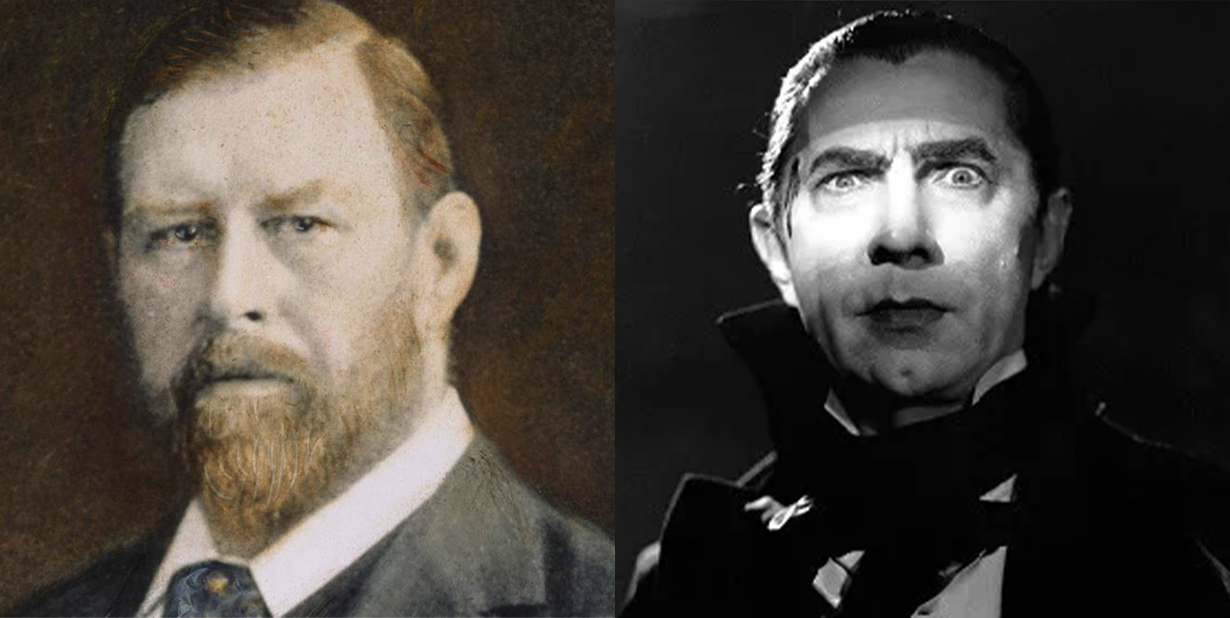
43. I Had To!
One of Stoker’s ancestors was James Lynch Fitz-Stephen, the Sheriff of Galway, who, according to legend, hanged his son. The junior Lynch had apparently liquidated a man because he thought he was trying to take his fiancé, and as Sheriff, it was his job to dish out the punishment.
Lynch Memorial Window
42. What’s in a Name?
The character Dracula has no first name and is known simply as Dracula. The word means "devil" in Wallachian and was given to anyone who was particularly calculating, cruel, or brave. After reading this, he changed the character’s name from its original Count Wampyr to Dracula.
40. Getting the Girl
Florence Balcombe was said to be quite the beauty, and one summer, while on vacation to Ireland, Oscar Wilde met Balcombe and fell head-over-heels in love. Wilde seemed to be planning to marry Balcombe, but somehow Stoker managed to sweep in and take her out from under his nose. Wilde apparently didn’t realize that girls want attention from their beaus, and it’s been suggested that she simply got fed up and started looking for a new man.
39. Fan Boy
As a young man, Stoker read Walt Whitman’s Leaves of Grass and felt an instant connection with the poet and his work. One night in February 1872, he wrote a nearly 2,000-word fan letter to Whitman describing his life and gushing to Whitman about how much he admired him. The next morning, he must have had second thoughts, because he put it away in a drawer instead of mailing it. Ah, the days before email and text.
38. The Start of a Beautiful Friendship
Four years after writing the original letter, Stoker was inspired to write Whitman again after defending him in a university club famous for its debates. This time, he not only sent the new letter but included the old letter as well. To his surprise, Whitman wrote back, and they continued to correspond until Whitman’s demise.
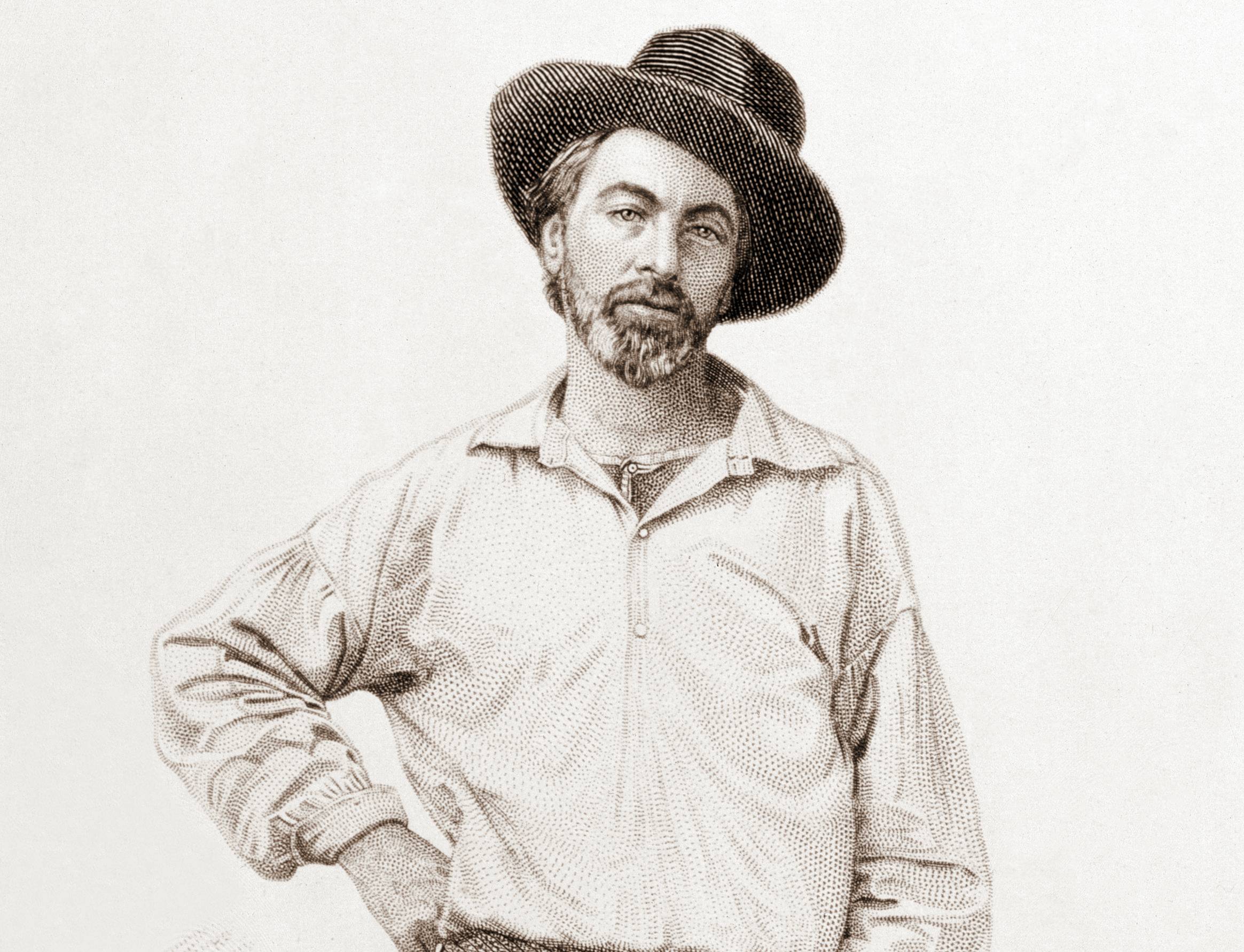 Samuel Hollyer , Wikimedia Commons
Samuel Hollyer , Wikimedia Commons
37. Miraculous Recovery
For the first seven years or so of his life, Stoker was always sick, and unable to stand or walk. Nobody knew what caused the illness, but equally inexplicably, by the time he got to college he’d grown out of it and became a star soccer player.
36. Destroy Them All!
Ten years after Stoker’s demise, his widow Florence got caught up in a nasty lawful fight over the German expressionist film Nosferatu. The film was an unauthorized version of Dracula and when Balcombe found out about it, she took them to court for copyright breach. The court battle lasted three years, but she came out of it with 5,000 pounds in royalties and a court order that all copies of the film be destroyed.
A few years later, she read an article claiming that Universal Studios had bought the rights, and she marched herself to Hollywood to make sure that the studios were also unable to take advantage of her.
35. He Also Wrote Some Stuff
Believe it or not, Stoker’s obituary barely made mention of his writing at all, remembering him more for his biography of Henry Irving. Neither the Irish Times nor the New York Times thought too highly of his other works, and his “lurid and creepy kind of fiction,” as it was described, was merely a side note.
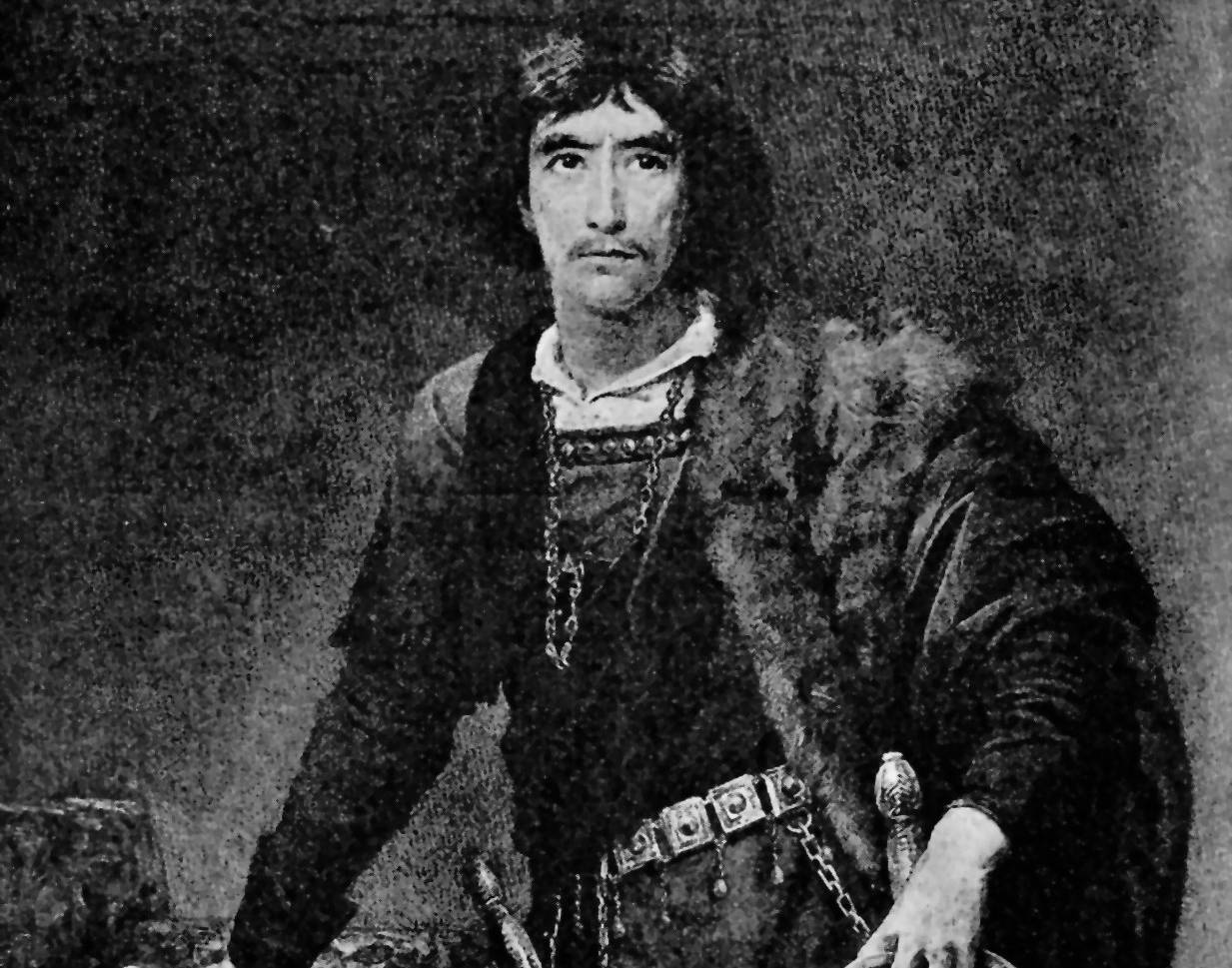 Unknown Author, Wikimedia Commons
Unknown Author, Wikimedia Commons

Sign up to our newsletter.
History’s most fascinating stories and darkest secrets, delivered to your inbox daily. Making distraction rewarding since 2017.
34. Not Quite So Charming
The handsome and suave image of Dracula that we’re used to on screen is not how he was originally described in the book. Stoker’s version has bushy eyebrows, a cruel mouth under a heavy mustache and sharp white teeth.
33. A Meeting of Minds
In 2003, two of Stoker and Wilde’s most famous characters—Mina Harker from Dracula and Dorian Gray from the book that bears his name—met in the film The League of Extraordinary Gentleman. In the film, she is portrayed as the former lover of both Dracula and Gray, which would definitely have made for an interesting love triangle!
 The League Of Extraordinary Gentlemen
The League Of Extraordinary Gentlemen
32. It Was the Crab
There are a number of myths surrounding the creation of Dracula, but according to his son, it came from a nightmare caused after eating some bad crab at supper. Maybe he should have had the lobster instead!
31. Famous Meetings
As actor Henry Irving’s manager, Stoker had the opportunity to travel to the United States where he met two presidents (Theodore Roosevelt and William McKinley) and his pen pal and idol, Walt Whitman. He probably thought that meeting the presidents was cool, but meeting Whitman was a dream come true!
30. Bringing the Baggage
When Dracula traveled to London he carried 50 wooden replicas of his grave in his Transylvania Castle, including the earth. It’s a good thing he didn’t have to fly commercial, or the baggage check fees would have been ridiculous!
29. Famous Not First
Dracula may be the most famous vampire story ever written, but Stoker didn’t invent the vampire story. The first was John Polidori’s 1819 story The Vampyre, which he was inspired to write as part of the same challenge that led to Mary Shelley’s Frankenstein. This, along with the penny dreadful Varney the Vampire and Sheridan Le Fanu’s Carmilla influenced Stoker’s iconic novel.
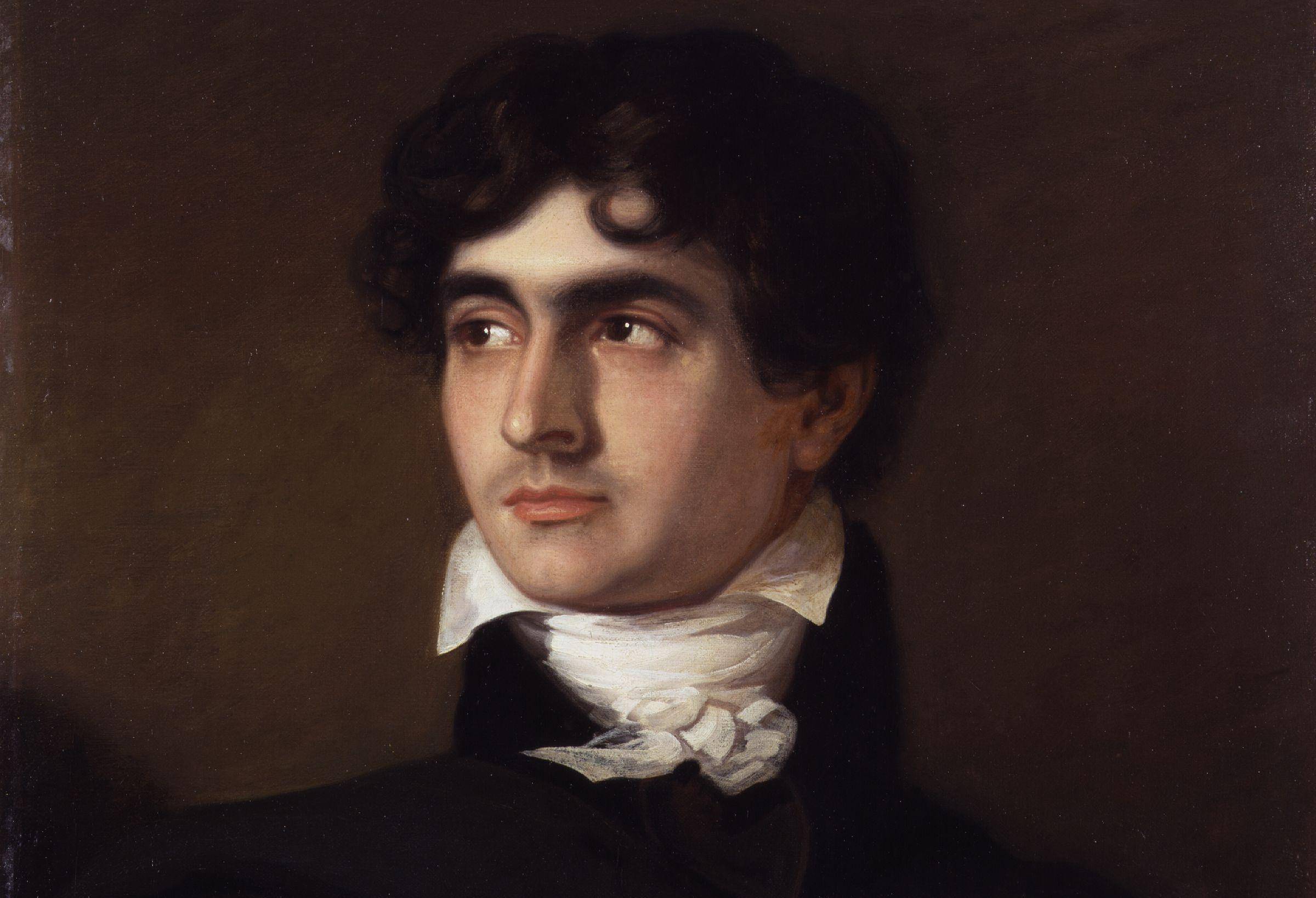 F.G. Gainsford, Wikimedia Commons
F.G. Gainsford, Wikimedia Commons
28. Inspiring a Master
Few modern horror authors have been as successful as Stephen King, and King has cited Bram Stoker’s influence on his works, most especially on Salem’s Lot. King imagined the novel as a retelling of Dracula, and the connected story Jerusalem’s Lot has a basis in his final work The Lair of the White Worm.
27. A Total Boss
Stoker describes Dracula as the “King Vampire” because of his ability to control other vampires. He can also create other vampires simply by biting his victim. This creates more undead for Dracula to control and helps him satisfy his blood lust, so win-win!
26. Playing Dracula
Not surprisingly, Dracula is the most portrayed horror character in film history, appearing at least 272 times. He’s been played by actors ranging from Bela Lugosi to Gary Oldman and Gerard Butler to the legendary Christopher Lee. The big/small screen seems far from done with the iconic character, so we can only imagine who will take up the cape next!
Christopher Lee as Dracula
25. We Have That?
The book that introduced Stoker to the word Dracula was so rare that the library didn’t advertise that they owned it. The only way to gain access to it was to ask for it specifically, and it could only be handled with the librarian’s supervision. That’s one serious book!
24. Demise on Display
Stoker’s instructions for demise were to be cremated and have his ashes placed on display in Golders Green Crematorium in London. His son’s ashes were also placed in the urn, but despite the original plan for his wife to also be placed there, somebody screwed up and scattered her ashes in the Garden of Rest. Tourists wanting to catch a glimpse of the ashes can visit the crematorium but need to be escorted into the room to protect the urn from vandals.
 Dracula Untold, Universal Pictures
Dracula Untold, Universal Pictures
23. Dracula's Castle
One of the possible locations for Dracula’s castle is Slains Castle in Scotland. It was a place that Stoker would have been intimately familiar with having spent summers nearby. When he wrote the description of the castle in the book he was actually staying in the area, so he would have had a bird’s eye view. Bran’s Castle in Romania has also been commonly associated with Dracula, but since Stoker never visited that region, he wouldn’t have seen the castle to write about it.
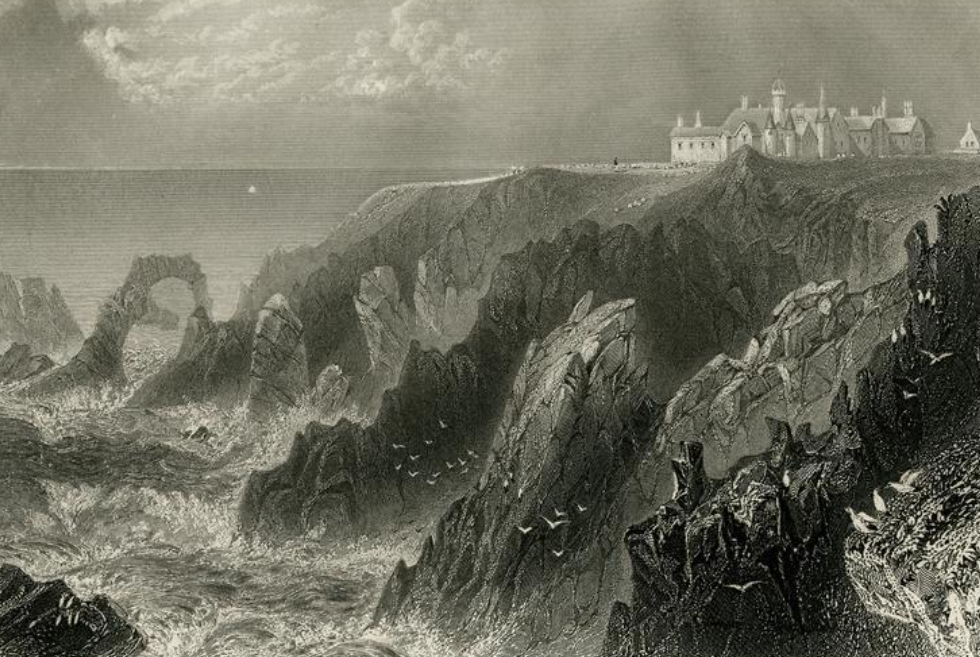 Robert Brandard, Wikimedia Commons
Robert Brandard, Wikimedia Commons
22. Numbers Guy
As a student at Trinity College, Stoker did not study writing or literature as you might expect. He spent six years at the school and received a degree in math. By all accounts he was a good student who worked hard at his studies, but I bet they never predicted he’d write one of the most famous horror novels of all time!
21. Day Job
Very few writers make enough money from their writing to pursue it full time, and Stoker still needed to support himself and his wife, so he worked as a civil servant at Dublin Castle, writing theater reviews on the side. In a stroke of luck, Stoker wrote a pretty solid review of actor Henry Irving’s portrayal of Hamlet for the Dublin Mail, and it changed his life. When Stoker moved to London, Irving gave him a job as his personal assistant and manager of his theater. This was just fine for Stoker who got paid to pursue his love of theatre and the money to fund his writing.
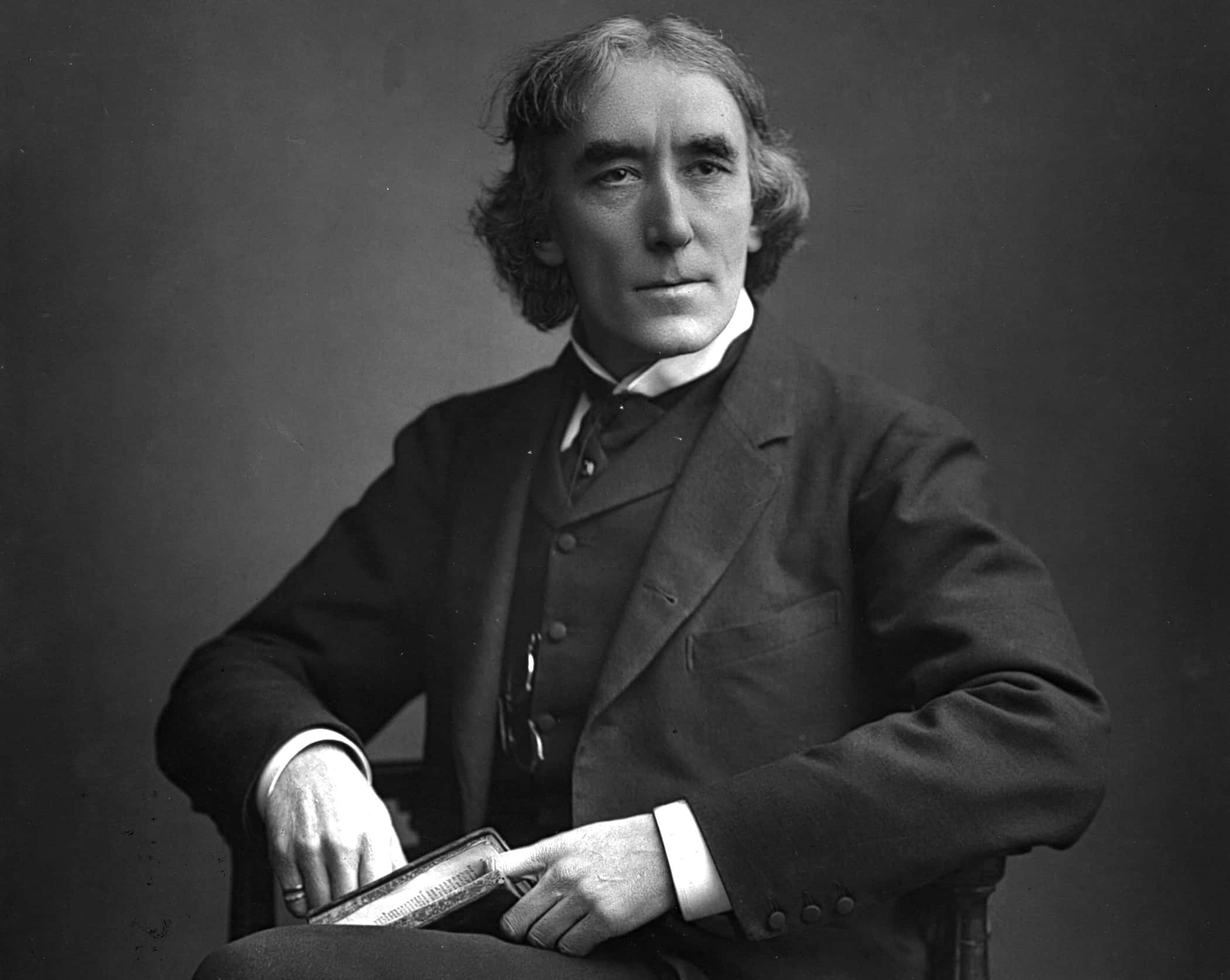 Getty Images
Getty Images
20. One- One Vampire. Two-two Vampires…
The famous Sesame Street character Count von Count is based on Bela Lugosi’s portrayal of Dracula in the 1931 film of the same name. In his earliest incarnation, the Count was one scary dude, pulling his cape over his face in a Lugosi-like manner, and he had a demented cackle. After a few seasons, the Count’s character was toned down quite a bit, mostly out of fear that he was frightening young viewers.
19. Dracula Rises Again
In October 2018, Dacre Stoker, the great-grandnephew of Bram Stoker, published the first authorized prequel to Dracula. He and co-writer J.D. Barker scoured Bram’s original notes and journals to create a fictional story about the events in Stoker’s life that led to him writing the novel. Dracul imagines what Stoker’s early life would have been like if the creatures he invented had actually been real. Considering that Stoker always maintained that they were, perhaps it’s not as fictional as they think!
18. Cause of Demis Unknown
The true cause of Stoker’s demise is a mystery, but various reports have suggested a stroke, syphilis, or exhaustion from overwork. Stoker made the unusual choice of having his remains cremated, so the truth will probably stay buried forever.
17. Reintroducing Evil
Dracula fans will be delighted to learn that the famous vampire will soon rise again on the small screen in a new Netflix/BBC co-production. The mini-series will consist of three 90-minute installments and will revolve around Dracula’s plans to take over Victorian London. No release date has been announced yet, but with the duo behind Sherlock producing, it’s bound to be awesome!
 Dracula Untold, Universal Pictures
Dracula Untold, Universal Pictures
16. Stage Before Page
In a highly unusual move, Stoker put on a stage version of Dracula eight days before the novel was published. The play was intended to generate buzz for the book and was also a way of making sure that he held onto the rights for his work. Clever!
15. Deal with the Devil
Even the vampire king has to come from somewhere, and according to the writings of vampire hunter Van Helsing in the novel, the Dracula family had dealings with the “Evil One,” and he claimed Dracula’s soul in exchange for sharing his secrets.
 Dracula Untold, Universal Pictures
Dracula Untold, Universal Pictures
14. The Missing Pages
By the time Dracula was published in the UK, 101 pages had been cut from the book, and seemed to have simply vanished. No living person has ever seen the missing pages, and their content remains a secret that Stoker took to his grave.
13. Not a Fan
Some of Stoker’s biographers have suggested that his boss Henry Irving was the true inspiration for Dracula, but even if he was, it didn’t make Irving like the story any better. When Stoker asked Irving his opinion of the story one night after a performance, Irving’s reply was “Dreadful". Ouch!
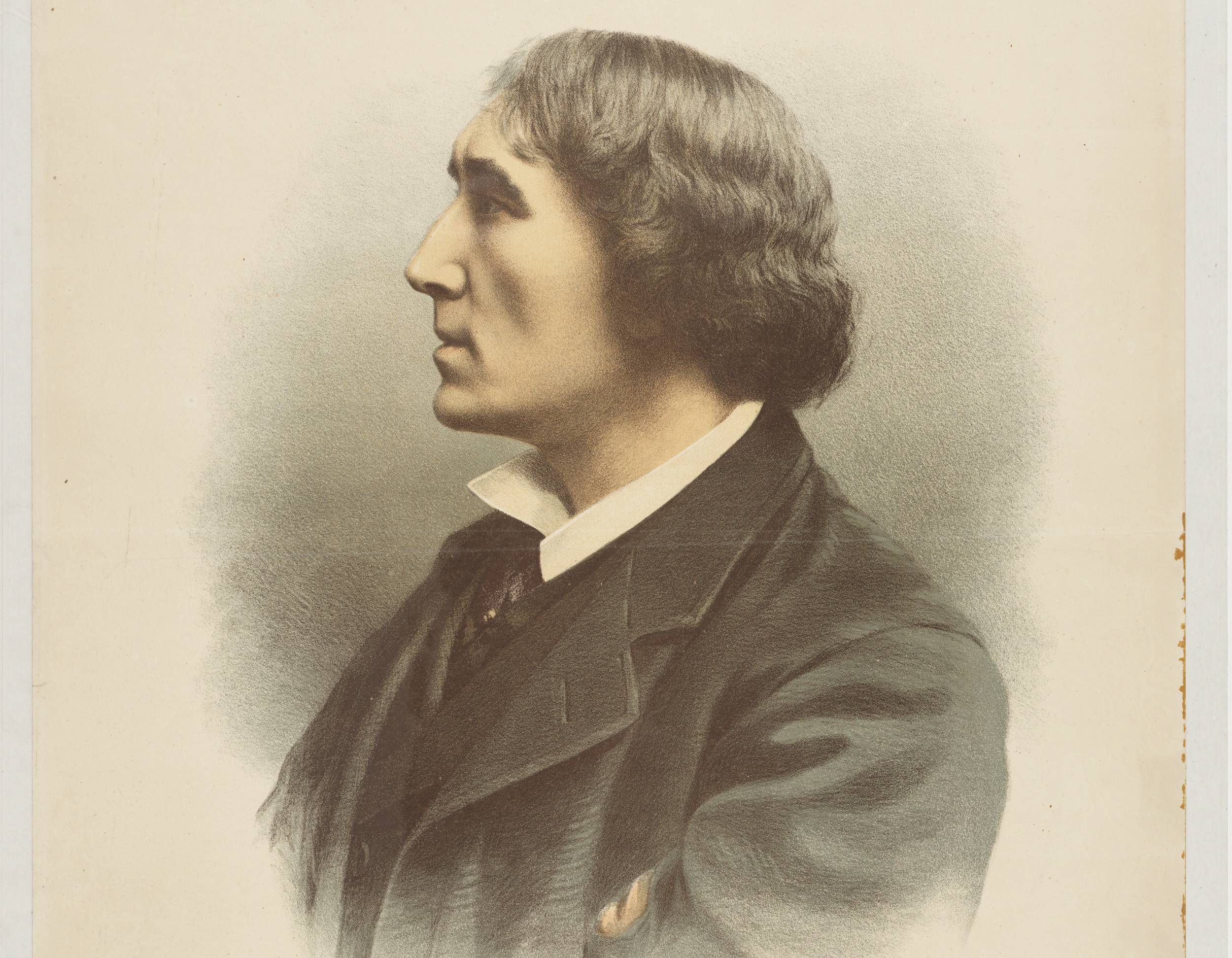 National Library of Scotland , Wikimedia Commons
National Library of Scotland , Wikimedia Commons
12. No Relation
It is a common believe that Stoker based his character on Vlad the Impaler, but some Dracula scholars disagree. Stoker’s widow sold his notes for Dracula shortly after demise, and without those notes to explain his process, scholars started filling in the blanks on their own. In truth, there’s no evidence to suggest that Stoker knew anything about the Impaler, but connections can be made between just about anything if you try hard enough.
11. Never Been There
Everything Stoker knew about Transylvania came from books and not from personal knowledge. The author never traveled to Eastern Europe and relied on a combination of research and imagination. Since most Victorians wouldn’t have been there either, they wouldn’t have known the difference between what was real and what wasn’t.
10. Sudden Shock
The sudden demise of Henry Irving while on tour was a literal shock to Stoker’s system and it caused him to have a stroke. The stroke forced him to retire, and while he continued to write for the rest of his life, his health and his finances were pretty precarious.
9. Late Success
Today, there’s hardly a soul on Earth who hasn’t heard of Dracula, but it wasn’t a runaway hit when it was first published. In fact, it was outsold that year by another horror novel, titled The Beetle, also set in Victorian London. Stoker’s Dracula owes its popularity to the slew of film adaptations dating back to the 1920s, and especially to Tod Browning’s blockbuster adaptation starring Bela Lugosi from 1931.
8. Furniture or Art?
In 2012, the desk where Stoker created his famous vampire went up for auction. It had been carefully restored to preserve the character of the desk and to honor its original owner. The furniture maker/designer also added a few improvements to the desk, including two leather-lined secret compartments for the new owner to find. The stories that desk could tell!
7. The Marvel Connection
Aside from Dracula’s numerous appearances in TV and film, he’s also turned up fighting with or against popular Marvel superheroes, including Spider Man, Dr. Strange, the X-Men, Thor, and Hulk. In 1973, he helped the Avengers battle the Mindless Ones, but not out of the goodness of his heart. From Dracula’s perspective, they were menacing his food supply (people) and if he wanted to have any humans left to feast on, helping the Avengers was his best bet.
6. Ahead of Her Time
Stoker’s mother Charlotte Matilda Blake Thornley was a highly progressive woman. Unlike most women of the time, she was outspoken, outgoing, and involved charity work and in social issues such as the difficulties faced by the deaf and mute, and improved training for girls working as servants. She also managed to raise seven children while doing all of this, proving just how amazing she was.
5. Seven Year Write
It took Stoker a minimum of seven years to write Dracula, largely because of the amount of time he spent researching and crafting the novel. Talk about persistence!
4. Not Really Fiction
In the original preface of the novel, Stoker wrote that the events of the novel really happened, and that many of the characters were real people. His intention had not been to publish a work of fiction, but to warn readers about the existence of true evil.
3. No Way!
When Stoker’s editor saw his ominous preface, he said absolutely not! London was still contending with the fallout of the gruesome Whitechapel person that ended the lives of more than one (AKA Jack the Ripper) and he didn’t want to be responsible for creating a fresh wave of terror. It was fiction or nothing, and so the final UK edition ended up looking a lot different than the original manuscript.
2. Raising the Coffin
Lucy’s demise scene in the novel might have been inspired by a real-life incident involving Stoker’s neighbor, the painter and poet Dante Gabriel Rossetti. When Rossetti’s wife passed, he quite romantically put a book of love poems in her coffin, wound with a lock of her hair. For some strange reason, seven years later he changed his mind and had the coffin brought up in the middle of the night so he could get his book back. Definitely not romantic!
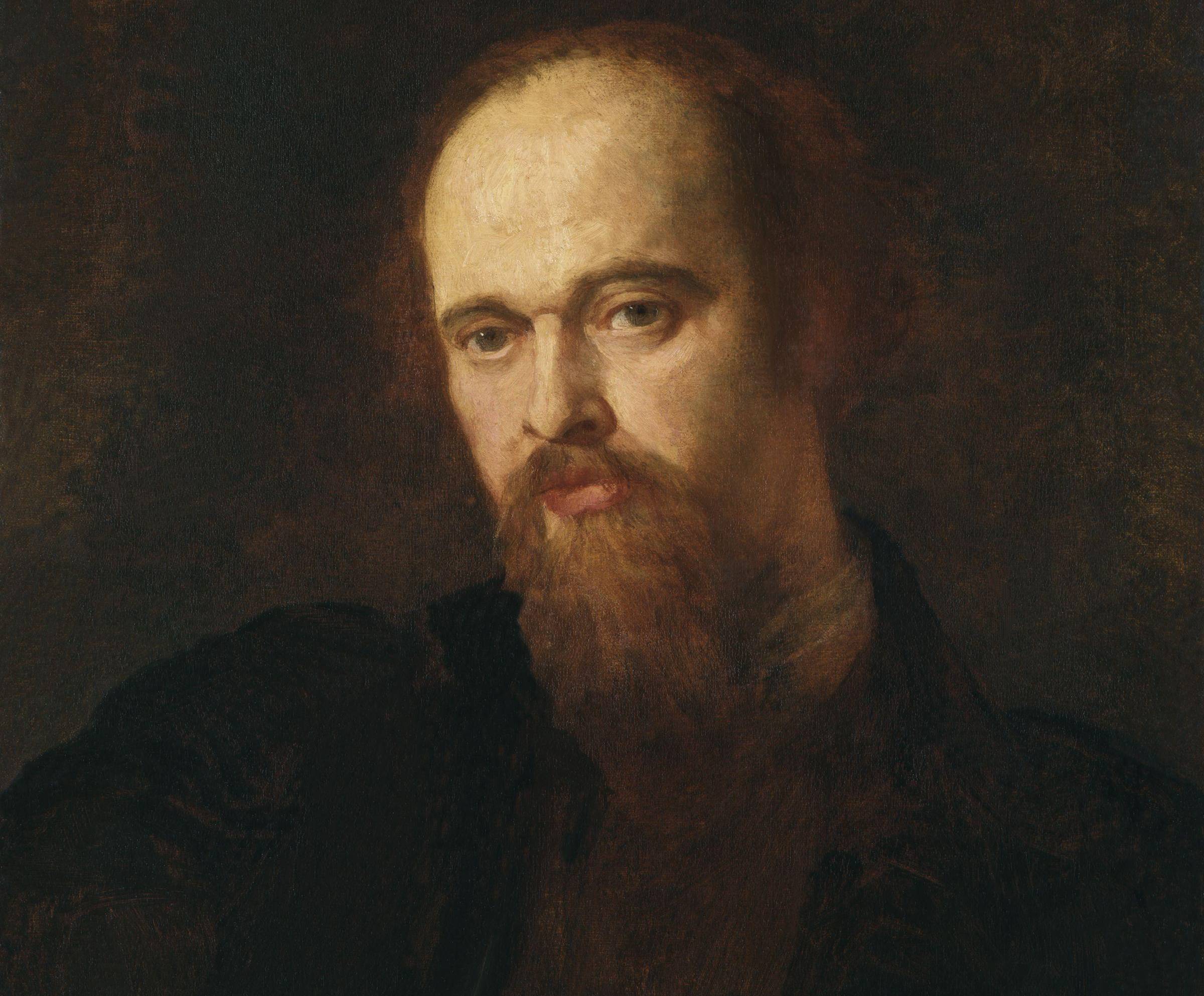 George Frederic Watts,Wikimedia Commons
George Frederic Watts,Wikimedia Commons
1. Sparking His Interest
As a means of entertaining her often bedridden son, Stoker’s mother would tell him scary stories about vampires and other monsters. The stories obviously sparked something in his impressionable mind as the supernatural figured prominently in his writing.
Sources: 1, 2, 3, 4, 5, 6, 7, 8, 9, 10, 11, 12, 13, 14, 15, 16, 17, 18, 19, 20, 21, 22, 23, 24, 25, 26, 27, 28, 29, 30, 31, 32, 33, 34, 35, 36, 37, 38, 39, 40, 41, 42



